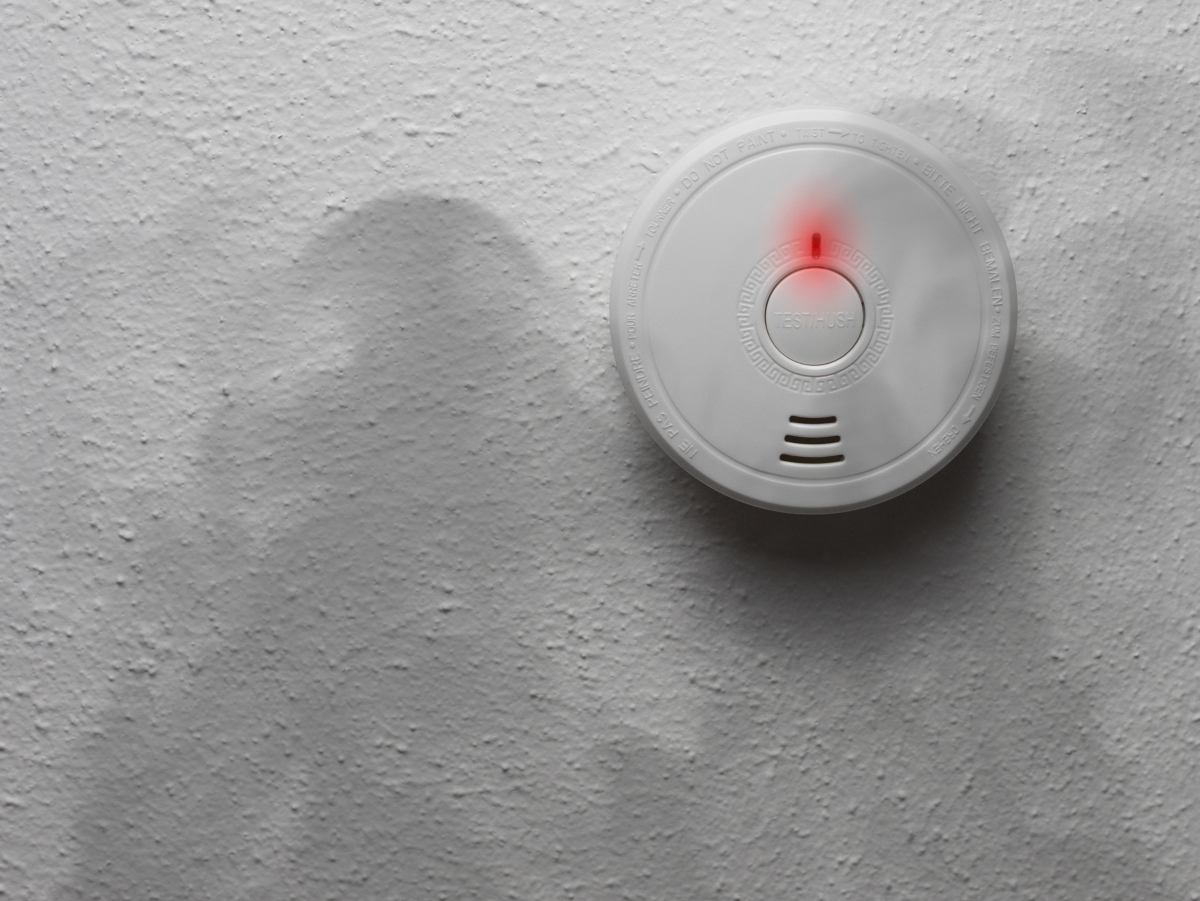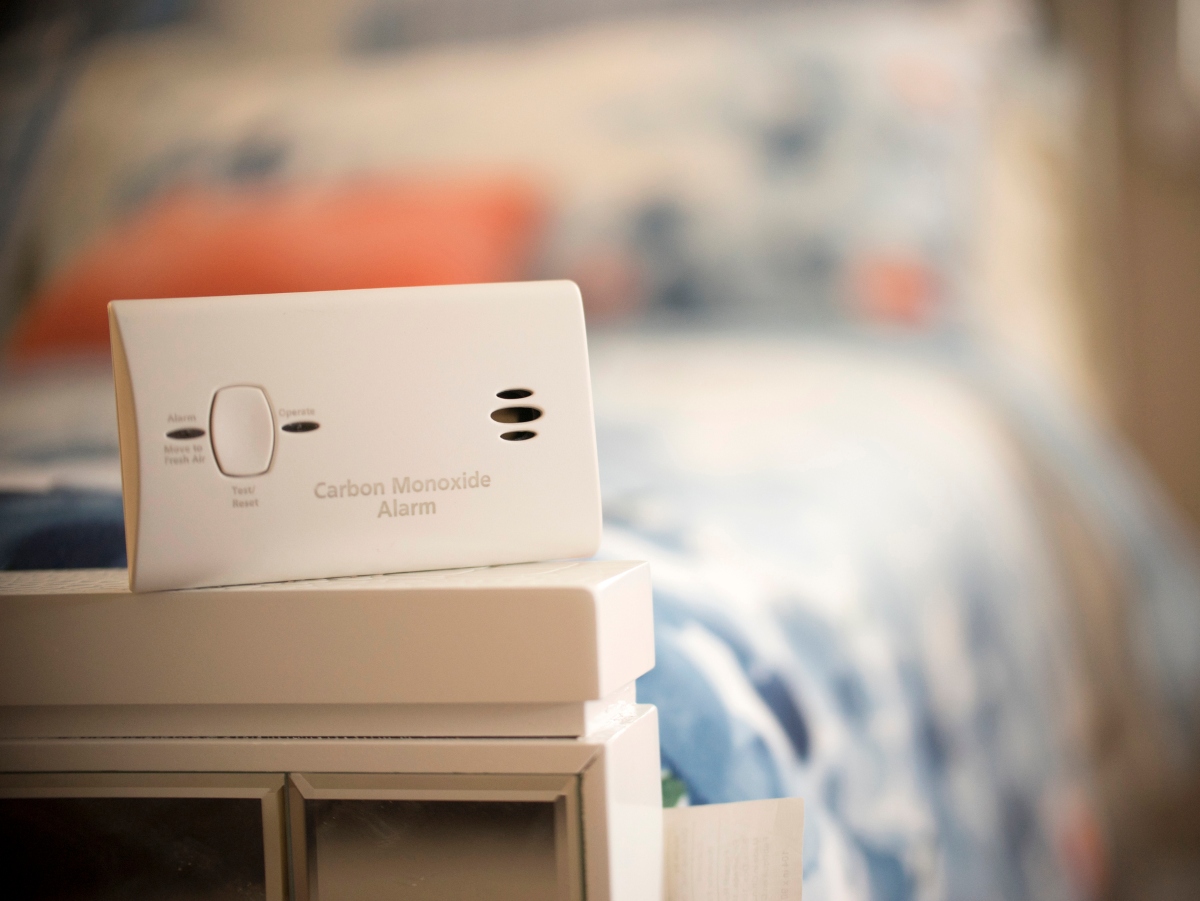A low battery, high carbon monoxide levels, or a system fault are some of the triggers of your carbon monoxide detector’s beeping sounds. Thus, decoding the beeps and their patterns is necessary as it helps you know the best action to take. So, is your carbon monoxide detector beeping, and are you unsure of the cause and what to do? Read on to learn how to keep yourself and your loved ones safe and avoid being caught off guard.
In this post, we give you a comprehensive explanation of why you hear your carbon monoxide detector beeping once or frequently. You’ll also learn what to do and give you a secret tip to protecting your home from fire hazards.
So Why Is My Carbon Monoxide Detector Beeping?
Before answering the question, “Why is my carbon monoxide detector beeping?.” Let’s first get the basics. What’s the benefit of having the smoke sensor?
As its name suggests, a carbon monoxide detector detects carbon monoxide in your house. Apart from the other general home insurance checklist, it has become a necessary tool for modern homeowners.
Carbon monoxide is different from the usual smoke detectable by your sight and smell senses. The gas is odorless, colorless, and fatally dangerous. It’s so dangerous, with carbon monoxide reports indicating 200+ people die annually from carbon monoxide poisoning while 5,000 people get injured from such related incidents.
The gas is mostly from incomplete combustion processes. Some of the most common sources that can quickly lead to the buildup of carbon monoxide in your living space or office include:
- Leaving a vehicle running in the garage, causing the gas to seep into the house
- A blocked chimney, flue, or vent causes a flow back
- An improperly vented charcoal grill, stove, or fireplace
- Running several appliances simultaneously leads to the competition for fresh air
In other words, carbon monoxide detectors can save your life. They work by monitoring the air for carbon monoxide gas and sounding the alarm if the concentration exceeds a safe threshold. The gas can come from various sources, such as faulty appliances, clogged chimneys, blocked vents, and car exhaust fumes. This means a carbon monoxide detector is a crucial safety equipment in any home. Even if sometimes its incessant beeping sound can cut short your afternoon nap or early morning sleep, it can keep you from sleeping forever.
So, what are the reasons for your carbon monoxide detector beeping?

1. The Detector Has a Fault
Like any other electric gadget, a carbon monoxide detector isn’t foolproof to electric and other mechanical issues. However, sensors from reputable companies last for a long time and come with a warranty. So, this shouldn’t be a concern. However, if a detector keeps beeping and everything seems okay from all scenarios, it’s necessary to have a qualified technician check your sensor. In most cases, depending on your brand, you’ll hear three or four beeps every 15 or 5 minutes in case it’s faulty.
2. High Carbon Monoxide Levels (That’s What It’s Built to Detect)
The United States Environmental Protection Agency (EPA) recommends 0.5 to 5 parts per million (ppm) levels of carbon monoxide in homes without gas stoves. Additionally, the agency advises:
- A concentration of 5 to 15 ppm for homes near properly adjusted gas stoves
- 30 ppm levels or higher for those near poorly adjusted stoves
These are relatively safe levels. However, carbon monoxide can cause severe health problems, including death, if not detected and treated promptly. Its other adverse effects include:
- Headaches
- Drowsiness and fatigue
- Low blood pressure
- Chest pains
- Nausea and vomiting
- Impaired judgment and confusion
- Unconsciousness
This means you can evade the effects of this dangerous gas with a carbon monoxide detector. It beeps and warns you when it detects high gas levels, especially when they remain so long. How long your detector sets off depends on the concentration. After about two hours, a detector will set off for about 70-80 ppm levels. On the other hand, levels of 400 ppm will cause your detector to beep within a few minutes.
3. The Batteries May Be Low or Flat
Flat or low batteries are another possible cause of your carbon monoxide detector’s beeping. These prevent your device from functioning correctly and will produce faint beeps warning you of this problem. In most cases, your detector will give a single chirp every minute to warn you of low batteries. Nevertheless, as technology advances, you can get batteries that can last a lifetime.
4. The Carbon Detector Is Nearing Its End
Typical carbon monoxide detectors’ shelf life is between five and seven years. Even if your gadget’s batteries are good as new, experts recommend replacing the detector every seven years. The reason is the sensor’s sensitivity reduces with time, yet you want a highly-sensitive gadget to keep you safe.
What to Do if Your Carbon Monoxide Detector Is Beeping
Your carbon monoxide detector beeping isn’t a wake-up call you can snooze. It’s trying to tell you something’s off, and you must act before things get worse. This section shows you what to do if your carbon monoxide detector is beeping and how to stay safe. However, note that every action depends on the cause of the beep. Thus, there’s no one-fit-all remedy for the beeps.
Check the Detector’s Display or User’s Manual
First, check the detector’s display or user manual to see what the beeping means. Different detectors use different beeping patterns and colors to indicate different things. For example, some detectors beep once every minute if the battery is low, while others beep repeatedly if there’s a carbon monoxide leak. Thus, checking the user manual is a perfect starting point if you’re unsure what the beep means.

Flat or Low Batteries? Test Them First
Many carbon detectors have a test button which comes in handy during installation or troubleshooting. You can use his button and change the batteries to see if the beeping stops. If the beeping persists, the problem may be something else, such as a carbon monoxide leak. However, if it isn’t a leak, have your gadget checked by a professional.
Evacuate the Area
With carbon monoxide detectors installed as a safety measure, evacuate whenever it beeps (four or five times continuously, about every four seconds). Even if you or anyone else doesn’t exhibit symptoms of inhaling the gas, always trust the detector. In addition, pets get affected more quickly than humans, so check them as you leave the building.
Once outside, call your local emergency service (911 or the equivalent). Don’t try to investigate or fix the problem yourself, as carbon monoxide gas can be deadly even in small quantities.
Ventilate the Area
If your carbon monoxide detector is beeping and the cause is a gas leak, you should ventilate the area by opening windows, doors, and air vents. Still, don’t do this and endanger your life.
When it’s impossible to do this, always leave the area and let fire professionals help you. Nevertheless, always try to ventilate closed spaces, especially during winter. This is so because most people tend to keep homes tightly sealed. Ventilating the area can help disperse the gas and prevent further buildup.
Replace or Repair the Detector
When your carbon monoxide detector beeps and your troubleshooting process narrows the problem to a malfunction issue, then it’s time to replace or repair it. Additionally, don’t wait or ignore the problem, as it can compromise your safety and health.
Test and Inspect Your Detectors
Testing and inspecting your carbon monoxide detector is helpful maintenance and safety practice. It’s vital even if the beeps are false alarms. Test outlet-plugged detectors monthly, while battery-operated ones replace the batteries annually.
Be Smart With ONIT Home Solutions
Carbon monoxide detectors are an essential safety device that can save your life. Remember, your carbon monoxide detector beeping shouldn’t be ignored or assumed as a false alarm. Take it seriously and follow the steps we outlined in this post. Besides this, choosing a suitable carbon monoxide detector is just as important as having one.
If you’re looking for a reliable and affordable home security and safety partner, ONIT Home is the right company to consult. We offer different security packages to protect your home. Our state-of-the-art security systems are customized to provide you with the protection you desire from fires, natural disasters, theft, and more. Speak to us and find out about our alarm systems that can monitor for smoke, carbon monoxide, water leaks, and more and send alerts on your phone. Speak to one of our agents by contacting us at 1-833-433-0331. We will provide you with more information about our products and services and help you make the right security decision for your home. Feel free to message us online at any time. For all your home solutions, we’re ONIT!


